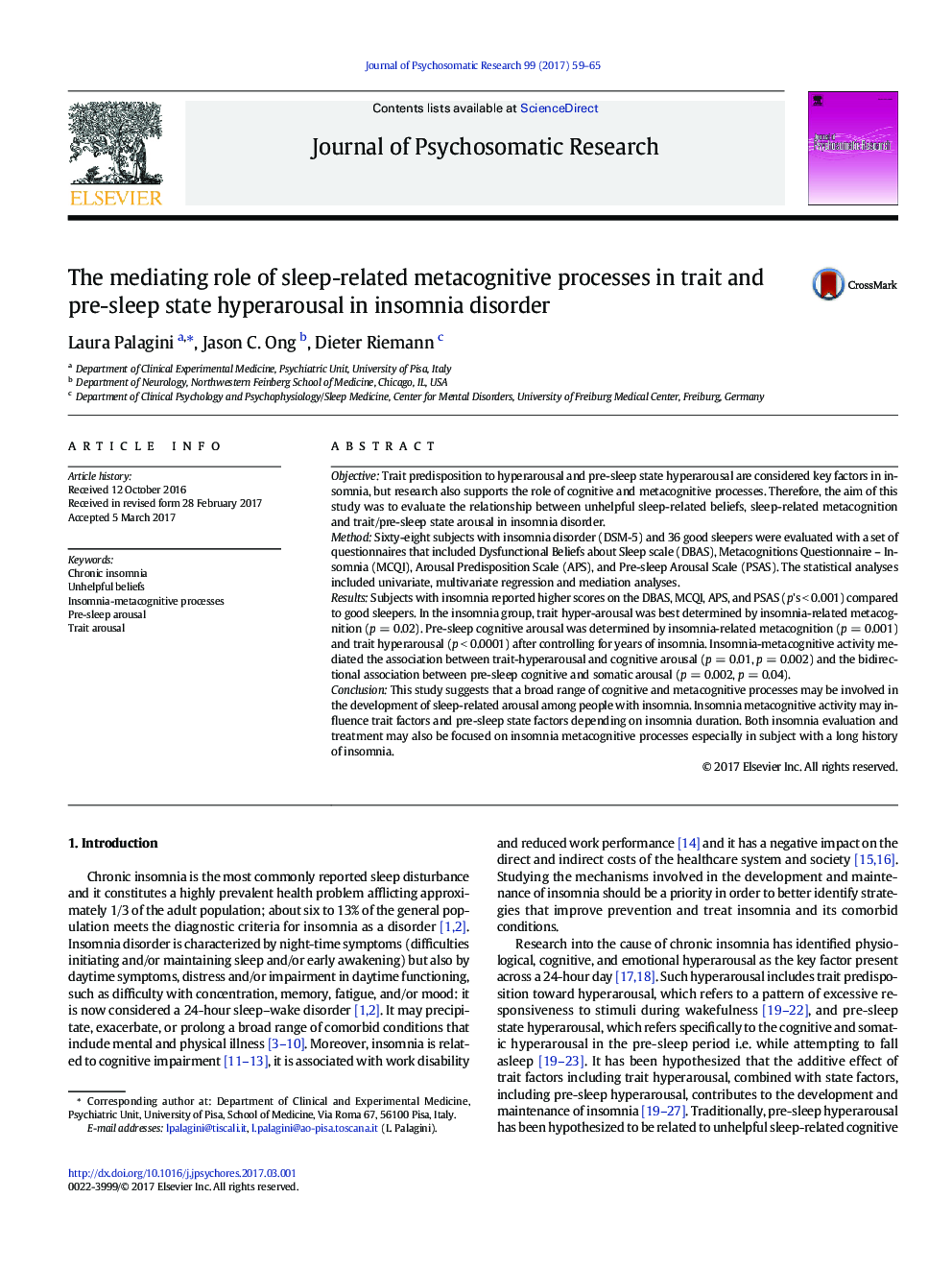| کد مقاله | کد نشریه | سال انتشار | مقاله انگلیسی | نسخه تمام متن |
|---|---|---|---|---|
| 5045888 | 1475896 | 2017 | 7 صفحه PDF | دانلود رایگان |
- Trait and pre-sleep state hyperarousal are considered key factors in insomnia.
- Both cognitive and metacognitive processes may play a role in trait and pre-sleep arousal.
- Metacognitive activity in insomnia may emerge over time.
- Metacognitive processes may be considered in subjects with a long history of insomnia.
ObjectiveTrait predisposition to hyperarousal and pre-sleep state hyperarousal are considered key factors in insomnia, but research also supports the role of cognitive and metacognitive processes. Therefore, the aim of this study was to evaluate the relationship between unhelpful sleep-related beliefs, sleep-related metacognition and trait/pre-sleep state arousal in insomnia disorder.MethodSixty-eight subjects with insomnia disorder (DSM-5) and 36 good sleepers were evaluated with a set of questionnaires that included Dysfunctional Beliefs about Sleep scale (DBAS), Metacognitions Questionnaire - Insomnia (MCQI), Arousal Predisposition Scale (APS), and Pre-sleep Arousal Scale (PSAS). The statistical analyses included univariate, multivariate regression and mediation analyses.ResultsSubjects with insomnia reported higher scores on the DBAS, MCQI, APS, and PSAS (p's < 0.001) compared to good sleepers. In the insomnia group, trait hyper-arousal was best determined by insomnia-related metacognition (p = 0.02). Pre-sleep cognitive arousal was determined by insomnia-related metacognition (p = 0.001) and trait hyperarousal (p < 0.0001) after controlling for years of insomnia. Insomnia-metacognitive activity mediated the association between trait-hyperarousal and cognitive arousal (p = 0.01, p = 0.002) and the bidirectional association between pre-sleep cognitive and somatic arousal (p = 0.002, p = 0.04).ConclusionThis study suggests that a broad range of cognitive and metacognitive processes may be involved in the development of sleep-related arousal among people with insomnia. Insomnia metacognitive activity may influence trait factors and pre-sleep state factors depending on insomnia duration. Both insomnia evaluation and treatment may also be focused on insomnia metacognitive processes especially in subject with a long history of insomnia.
Journal: Journal of Psychosomatic Research - Volume 99, August 2017, Pages 59-65
